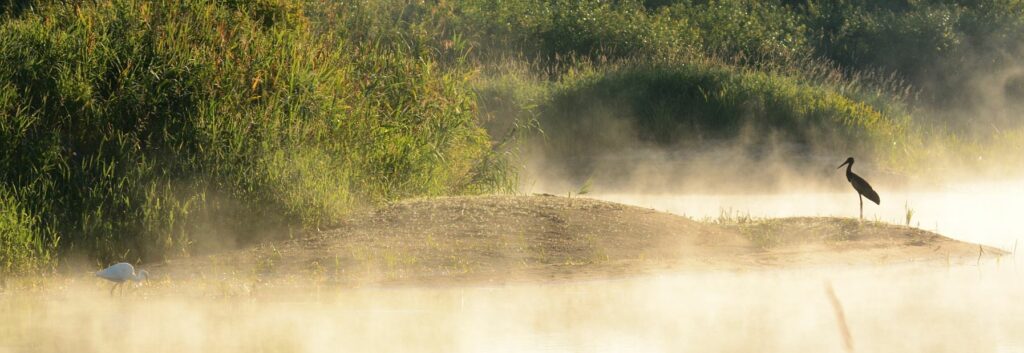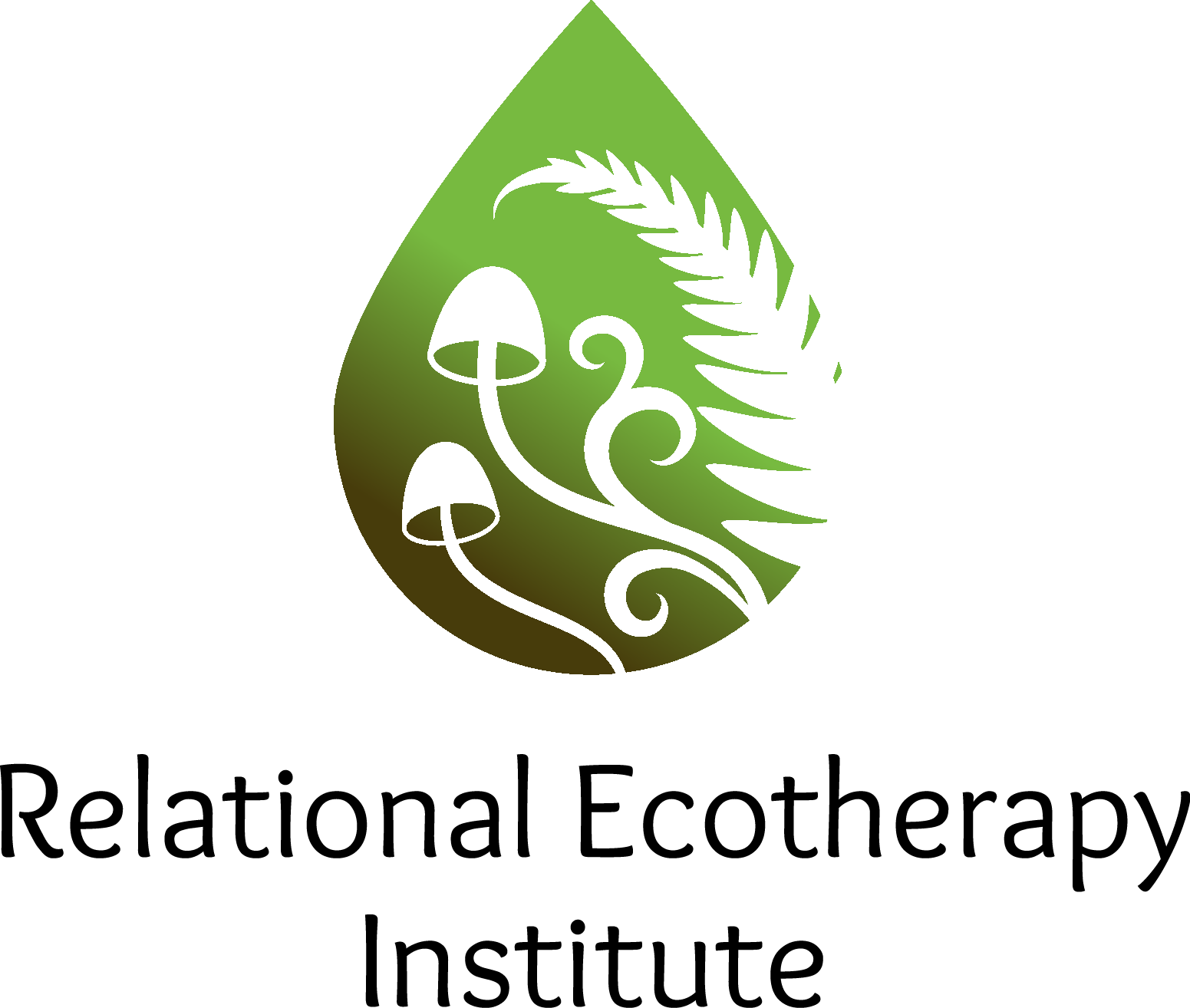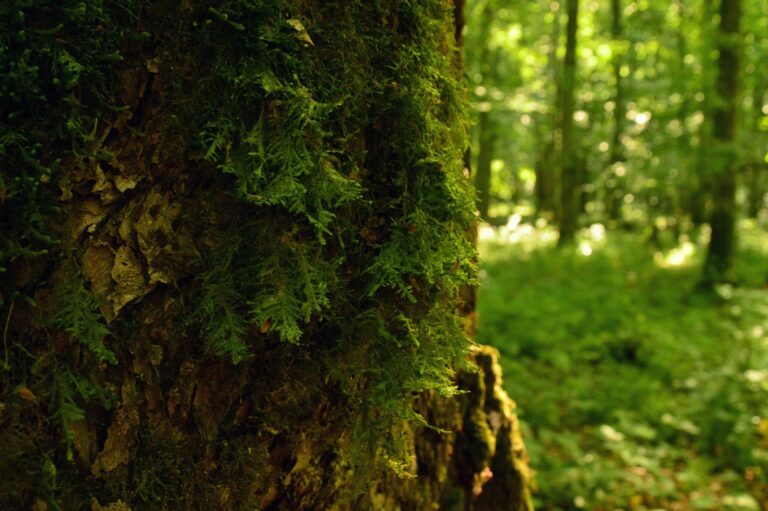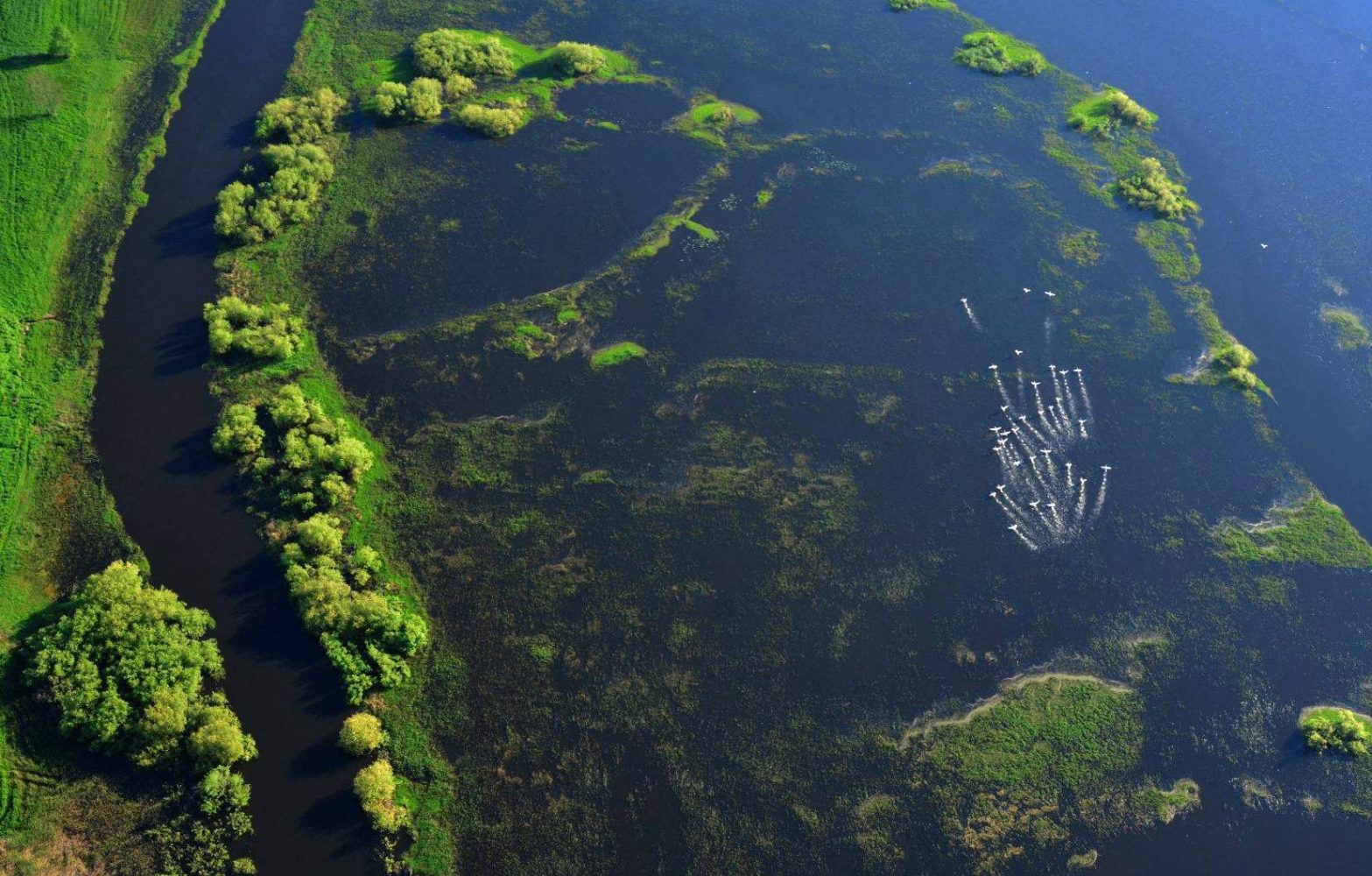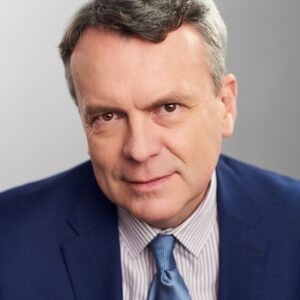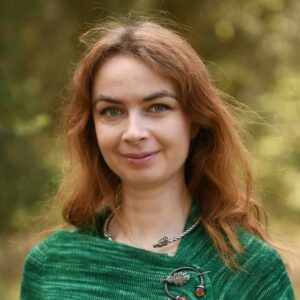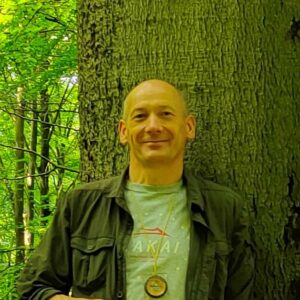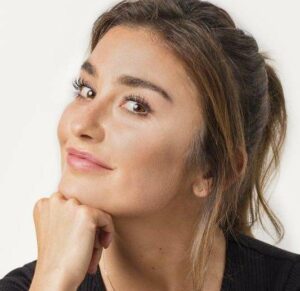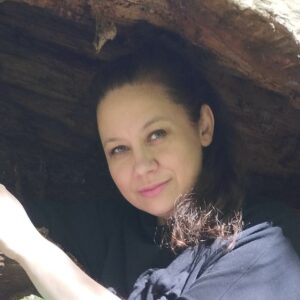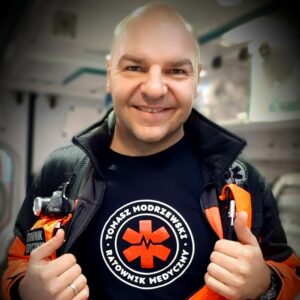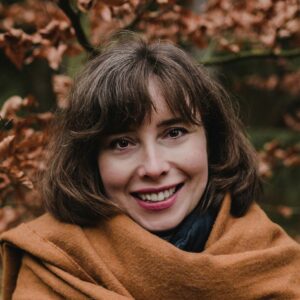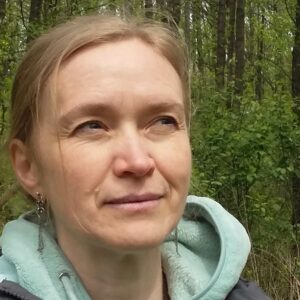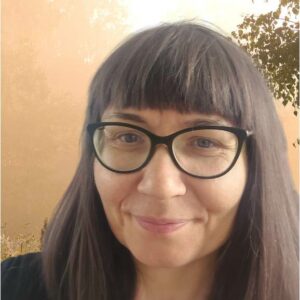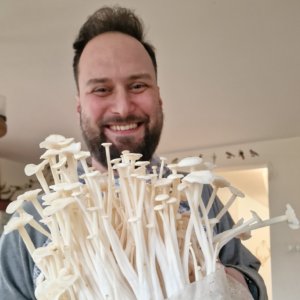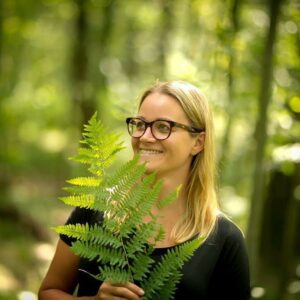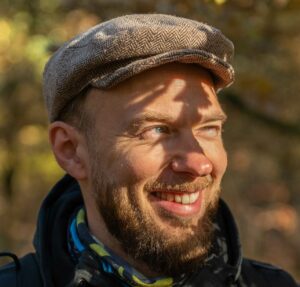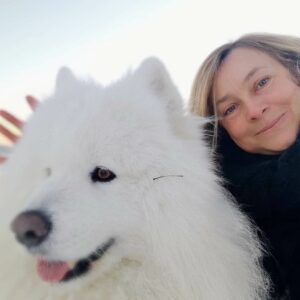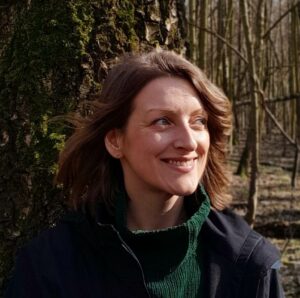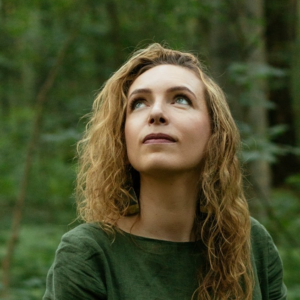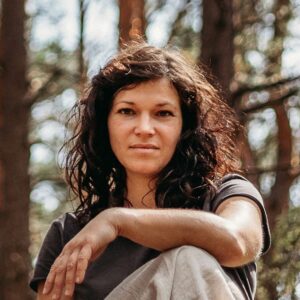Let us introduce you our interdisciplinary Team: scientists and practitioners who share a common passion – a love of nature and exploring its mysteries. We invite you to a unique opportunity to benefit from their vast educational resources, knowledge and experience during field, classroom and online activities.
Experience Creators:
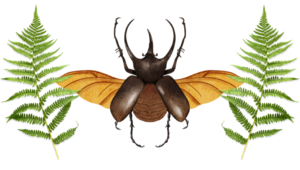
Lecturers and Experts:
mental health, therapeutic ornithology
mental health, forest therapy, ecotherapy
forest ecology
dr Joanna Wojsiat (former Podgórska)
neurobiology
Monika Gendek ecopsychotherapy, psychology
emergency medical services
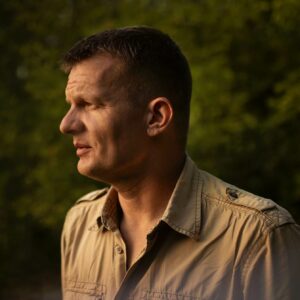
survival, first aid outdoors
forestry, landscape architecture
fitotherapy, herbalism
aromatherapy, fitotherapy, herbalism
mycotherapy, medical mushrooms
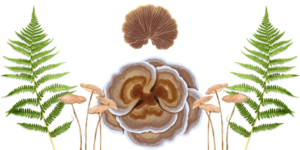
Trainers and Mentors:
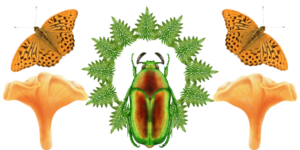
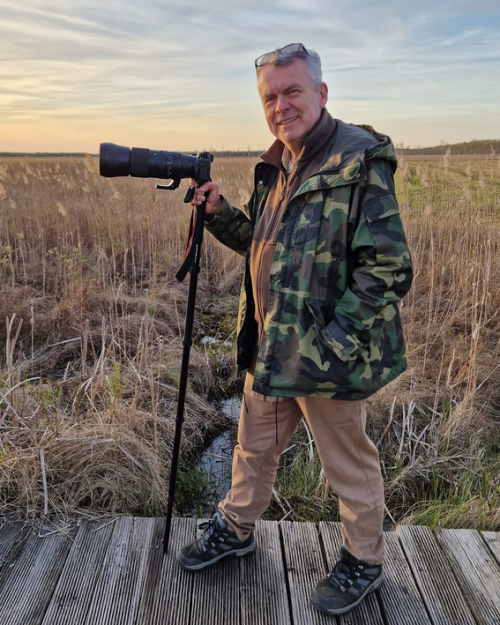
Sławomir Murawiec – psychiatrist, psychotherapist, scientist, author of the famous book ‘Therapeutic Ornithology’, co-creator of the term ‘therapeutic ornithology’ in the world’s scientific literature, columnist for the magazine ‘Sens’, pioneer of the ecopsychiatry trend in Poland.
As our Expert writes about himself:
I am a medical specialist psychiatrist and psychotherapist with over 30 years of experience.
I worked for more than 15 years at the Institute of Psychiatry and Neurology in Warsaw, and now I have been working in private practice for several years.
In 2021, together with Prof. Piotr Tryjanowski, we published a book’ ‘Therapeutic Ornithology’ .
I have participated in many studies on the effects of contact with the natural environment on mental health. In particular, these were studies on the relationship between birdwatching and mental well-being and well-being. I have conducted fieldwork on ecotherapy topics for both professionals (psychiatrists, psychotherapists) and patients with mental health problems. I co-led an ecotherapy workshop in the Biebrza valley with Dr Katarzyna Simonienko.
I have presented the results of scientific research and practical experience on the impact of contact with nature in the context of mental health at many scientific conferences, including two consecutive Congresses of Polish Psychiatrists.
I have also repeatedly addressed this topic in media appearances and interviews.
In terms of my work as a psychiatrist – I am the author of many scientific and popular papers based on the latest reports and knowledge,
combining the biological and psychological dimensions of the treatment of mental disorders. I have also published many chapters in books and textbooks on psychiatry and psychotherapy.
I have co-authored several books, including: “From Neuroscience to Psychotherapy”,” Depression 2016″ and “Depression 2017” as well as “Pharmacotherapy in Outpatient Psychiatry” and the aforementioned ‘Therapeutic Ornithology’.
As an expert, and as a Spokesperson for the Polish Psychiatric Association, I speak in the media on topics related to mental health problems and their treatment.
I am Editor-in-Chief of the scientific journal “Personalized Psychiatry” and a member of the Board of the Polish Psychiatric Association.
I am also the recipient of the “Golden Synapse” award given in 2018 in the category “Meritorious Service to Psychiatry”.
The above biography, as well as much other interesting information about the Author, can be found on the website:
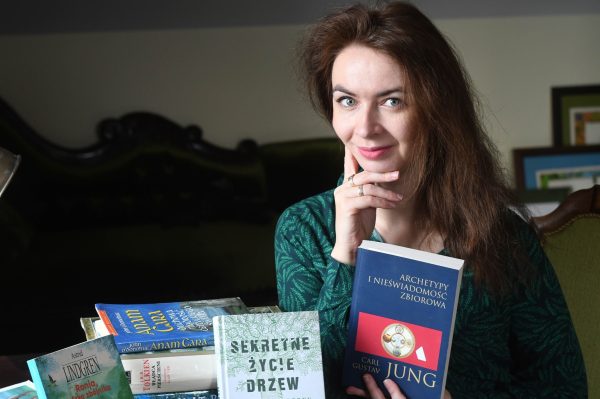
Katarzyna Simonienko – PhD, medical doctor, psychiatrist, certified ecotherapist, forest therapy guide, vice-president of the Polish Forest Bathing Association, guide of the Bialowieza National Park. She graduated from the Medical University of Bialystok in 2008, specialised in psychiatry at the MUB Department of Psychiatry in 2015, defended her doctoral thesis in 2017. Member of the Polish Psychiatric Association. Since 2018 she has been a forest therapy guide, currently in training in Jungian psychology at the Association of Jungian Analysts.
She says:
I am a psychiatrist by profession, practice and passion. I defended my doctoral thesis on the effects of psychoactive substances on the brain, combining my interest in ethnobotany with psychiatry. I am currently working in a counselling service at the Bialystok psychiatric therapy centre “Mind Health” and I also run the Forest Therapy Center in Bialystok. I specialise in the treatment of anxiety and depressive disorders, insomnia, burnout, PTSD, ecopsychiatric disorders (climate anxiety, climate depression, activism burnout). I have been conducting forest therapy and forest bathing regularly since 2018, mainly in the Podlasie region.
My professional experience includes many years of working with patients at the S. Deresz Psychiatric Hospital in Choroszcz from 2009-2020 and at the Department of Psychiatry at the Medical University of Bialystok from 2012-2020, where I had the pleasure of teaching students (hello my groups!) and pursuing my scientific interests. I have taught criminology at the Faculty of Law at the University of Bialystok and psychiatric phytotherapy as a lecturer at the WSTH in herbal medicine. I have undergone training in working with post-traumatic stress disorder using the prolonged exposure method (PE, in the cognitive-behavioural therapy stream). In 2019 I became certified as a Forest Therapy Institute (FTI) forest bathing guide and then became part of the FTI coaching staff, where I also worked as a mentor for trainees from 2020-2021. Since 2018, I have been a licensed guide for the Bialowieza National Park. In 2022 I earned a certificate in ecotherapy under the guidance of Linda Buzzell and Mary-Jayne Rust at Pacifica Graduate Institute, USA. I am currently in training in Jungian psychology with the Association of Jungian Analysts.
In 2021. three of my books on the beneficial effects of the forest on our health will be published: “Lasotherapy”, “Nerves into the forest” and “Forest therapy in research and practice”. I am also co-author of books in the field of psychiatry (“Patient >>other<< challenge of medical care” , “Caring for the elderly. A guide for the therapeutic team”, “Schizophrenia in women” edited by Prof. A. Szulc and Prof. P. Galecki), ecotherapy (“Nature and mental health” edited by M. Gawrych, 2022) and scientific publications. I conduct scientific research and cooperate scientifically with research units at home and abroad. I am a columnist for “Newsweek Psychology”- “A column straight from the forest”.
Privately, I am a wife and mum, I paint, I take care of primary breed dogs. I am interested in Jungian psychology, biophilic theory, implementing biophilic solutions in urban environments, human-animal and human-nonhuman relationships in general, legends, ancient European (Celts, Slavs, Vikings) and tribal cultures. Since childhood, I have been fascinated by herbal medicine, hence the initial publications in the magazine Panacea on the effects of plants on human health. My academic work has enabled me to broaden these interests.
More about dr Simonienko here https://www.forest-therapy.pl
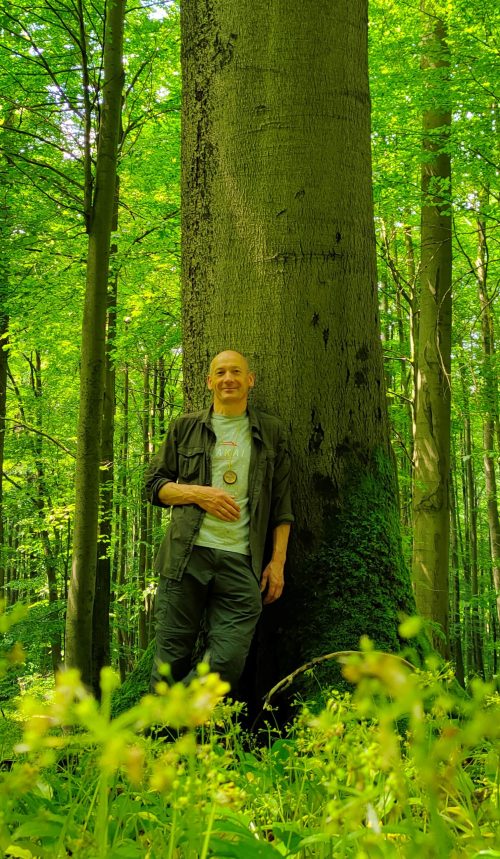
Bogdan Jaroszewicz – professor of biology, head of the Białowieża Geobotanical Station at the University of Warsaw, deputy director of the Białowieża National Park for many years. Deals with the ecology of the natural forest. Author of many publications and scientific dissertations. With his scientific and didactic activities, he popularises the scientific and natural values of the Białowieża Forest. Member of the Polish Tourist and Sightseeing Society, the Polish Botanical Society and the IUCN (International Union for Conservation of Nature. Since 2019 member-correspondent and since 2014 ordinary member of the Warsaw Scientific Society. From 2011 to 2014 Prof. Jaroszewicz was a member of the Committee on Nature Protection of the Polish Academy of Sciences, from 2019 a member of the Committee on Evolutionary and Environmental Biology of the Polish Academy of Sciences and from 2023 a member of the Committee on Conservation and Management of Natural Resources of the Białystok and Olsztyn Branches of the Polish Academy of Sciences. Laureate of the Award of the Minister of Environment “For special scientific and research achievements in the field of protection, shaping and use of the environment and its resources”, for the work: Catalogue of the fauna of the Białowieża Forest (eds.: Gutowski J. M., Jaroszewicz B.), Warsaw, 5 July 2002.
In 1992 he obtained the professional title of M.Sc. in forestry “Dendrochronological studies on spruce Picea abies (L.) Karst. in the Babia Góra and Białowieża National Park.”, in 2000 he defended his doctoral thesis and obtained the degree of Doctor of Biology with the dissertation “Zagadnienie odrębności taksonomicznej Carterocephalus palaemon tolli Krzywicki, 1967 w Puszczy Białowieskiej.” , receiving the distinction of the Council of the Faculty of Biology and Earth Sciences of the Nicolaus Copernicus University in Toruń for the prepared dissertation and the conduct of the public defence. In 2013, he received his Ph.D. degree from the University of Warsaw,m titled “Influence of endozoochoric seed dispersal by the bison Bison bonasus on the species composition and frequency of plants and soil seed banks of forest ecosystems”, in 2019 he received the title of professor in the field of science and natural sciences.
Professor Jaroszewicz is the author of numerous national and international publications and is involved in many international and inter-team initiatives.
He is an expert in forest ecology and nature conservation, which he continues to explore, working in such a unique place as the wild and biodiverse Bialowieza Forest.
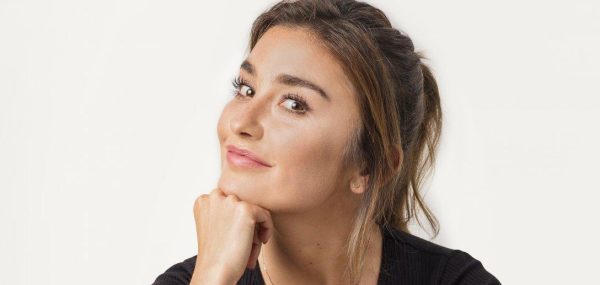
Joanna Wojsiat (former Podgórska) – molecular biologist and biotechnologist, PhD in biology in the discipline of biochemistry (neurochemistry) at the M. Nencki Institute of Experimental Biology of the Polish Academy of Sciences in Warsaw. Scientific consultant, author of scientific and popular science publications, monographs. Graduate of Psychosomatics and Somatopsychology at the SWPS University in Warsaw, of Sports Dietetics at the Academy of Physical Education in Warsaw and of Conducting and Monitoring Clinical Trials at the Leon Koźmiński Academy in Warsaw. Currently, an academic lecturer at SWPS in Warsaw and Poznań. Member of the Scientific Council of the Polish Psychedelic Society, member of the Scientific Council of Wise Future and the Be Foundation.
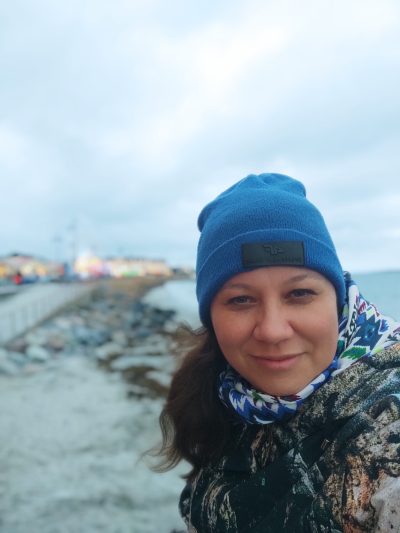
Monika Gendek- psychotherapist, supervisor, psychologist. Graduate of the Academy of Deep Ecology and the School of Ecopoetics. Cooperates with the Lodz Gestalt School.
In her psychotherapeutic work, she integrates Gestalt therapy aesthetics with ecopsychology and deep ecology.
Co-creates original projects-vessels for collective maturation.
As she writes about herself https://conferencegestalt.com/pl/monika-gendek/:
‘Working in the area of deep encounter with self and others called to me many years ago. My curiosity about the invisible, the intuitive, subject to alchemical transformation through contact, led me down a spiral path to study psychology and psychotherapy. I became enthralled with the creative dimension of Gestalt philosophy and practice. Later in my academic career, I focused on the phenomenon of parentification, professional burnout and body image in the helping professions. I co-edited the journal Phenomenon, dedicated to Gestalt psychotherapy. (…) I run workshops for people interested in integrating the psychotherapeutic process with nature work. I am interested in the psychological phenomena of the late Anthropocene and the quality of contact with the ‘wild self’. (…)
I am involved in community projects related to climate activism and supporting therapeutic culture in building practices for health. I run supervision meetings for people from different therapeutic modalities. My intention is an embodied practice in which a deeply healing quality is engaged presence.’
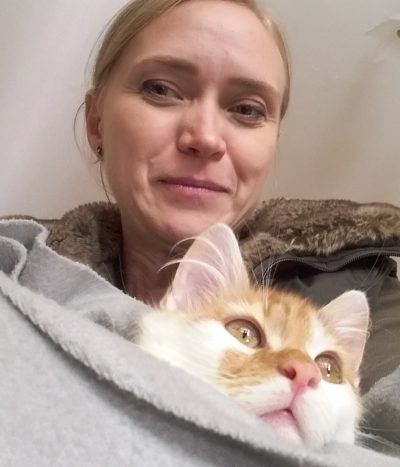
Kasia Rutkowska – a graduate of the Institute of Herbalism and Natural Therapies, where she completed the Professional Herbalist Phytotherapist course.
Our expert about herself:
My love of nature has its roots in my childhood, when I often went to the countryside to my grandparents who lived on the edge of the Knyszyn Forest, and spent the other time with my parents at the ROD allotment. It was in the Podlasie countryside, spending most of my time in the backyard, that I played in the so-called ‘shop’, where wild plants were food products (e.g. aphid seeds – bread) and learnt about flower species which are now experiencing a renaissance (velvet flowers, marigolds, pansies, dahlias, hollyhocks, asters and many others) . My interest in plants has returned with redoubled force in my adult life, and the decision to organise my knowledge of plant healing was born during the pandemic.
I have been professionally involved in education since 2000 as a French teacher (MA in Applied Linguistics at the University of Warsaw), which has given me the opportunity to gain experience in working with people of all age groups. Inspired by the biodiversity in the forest, I intuitively applied interdisciplinarity in my lessons, combining language education with art education. However, my openness to alternative teaching methods and my admiration for kindergartens and forest schools were not enough to stay in the teaching system because it was the magnificent and arch-enchanting world of plants that absorbed me for good.
Privately, I am the caretaker of a non-existent herd of cats rescued and pulled out of trouble, including a disabled but full-figured suave cat – Ptysia.
Several years ago I founded the artistic jewellery brand “Kasia Rutkowska – Author’s Jewellery”, created from silver and minerals, for which ideas and inspiration are constantly provided by the surrounding nature.
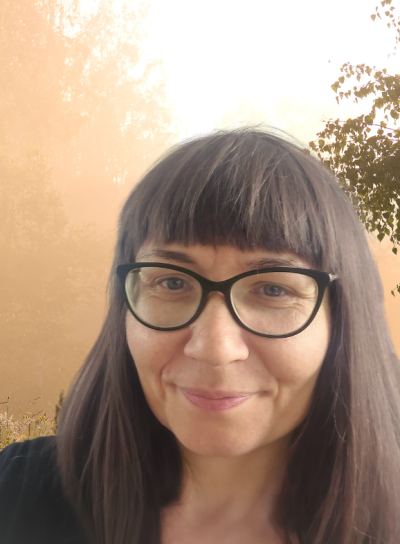
Phytotherapist, aromatherapy enthusiast, traveller, mother, owner of the brand AROMA IKIGAI – natural aromatherapy products to support body, spirit and mind. For many years she has been fascinated by gaining knowledge, expanding her awareness and personal development.
Graduate of:
-Academy of Seeking Greatness, Thinking into Results coaching programme;
-Polish Herbalism and Natural Therapies Institute S.C – completed Vocational Herbalist Phytotherapist Course and Herbal and Medical Herbalism Course;
-Courses in aromatherapy and natural perfumery conducted by Inez Rogozinska;
-VidnoCircle – Annual School of Personal Development for Women – spiritual and personal development workshops led by Kamila Jankowska.
-Certified Breath Coach (Certified Diploma Master Practitioner) – graduate of the 4th edition of the New School of Breath, based on methods such as Breath Integration, Presence through Breath, coaching, breathing techniques, system therapies, meditation, NLP, led by Grzegorz Pawłowski, Kamila Jankowska, Iwona Kubiak and Sylwester Adamczuk;
-Dutch and German philology at the Warsaw University.
In the context of aromatherapy, she writes about herself:
‘I was sensitive to scents, both “beautiful” and “ugly”, even as a child. I love discovering new, previously unknown plants and scents – such as frangipani or frankincense, or savouring the scent of the native mirabelle flowers. Working with essential oils gives me a lot of joy and satisfaction. I firmly believe that aromatherapy is a powerful support for the body, spirit and mind. Evidence for the therapeutic effect of aromatherapy and its effectiveness is, of course, also provided by scientific research, including numerous clinical studies.’
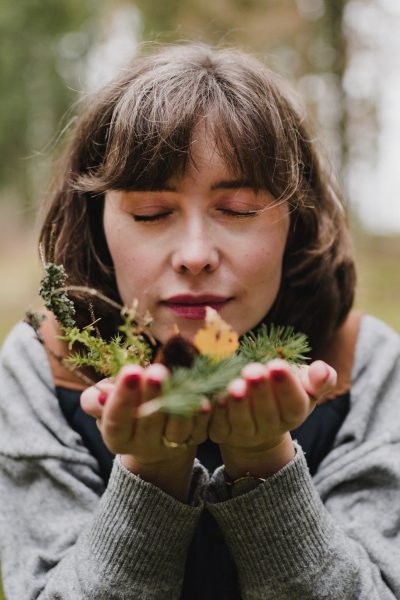
Maria Rothert-Proniewicz is a landscape architect and forester by training.
She is also a tourism and hospitality manager and a Design Thinking facilitator.
Since 2021, she has been a certified Forest Therapy Hub forest bathing guide and a member of the Polish Forest Bathing Association.
She conducts forest baths for groups and individuals, workshops and lectures under the banner “Hug a Forest” (www.przytullas.com.pl).
Author of articles on the impact of the forest on human health, participant in TV programmes, podcasts, speaker at panel discussions (e.g. Polish Power of Business), national and international conferences and workshops.
As of December 2021. She lives in Olsztyn, where she establishes cooperation with local foundations, ministries, organisers of healthy lifestyle events, with the aim of introducing forest bathing to the offer and organising joint events where nature plays a central role.
The forest is where she finds peace. There, her thoughts flow freely, and her head and heart are inspired and driven to keep exploring.
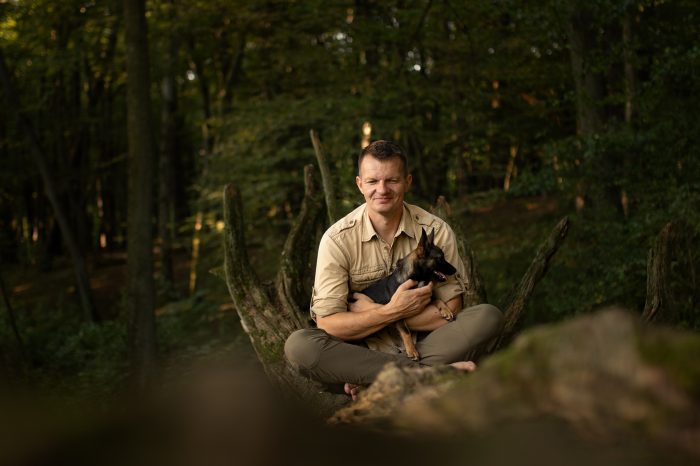
Bartek Guentzel – a self-taught naturalist who gained most of his knowledge and experience during his childhood, during trips to the forest, camping trips or holidays spent in the countryside. He graduated from the School for Trainers in Nature Education, and also took part in a year-long Polish-German course in Wilderness Pedagogy and the Trapping Academy, but it was the free play during his childhood that shaped his relationship with nature and sparked a delight that has not left him to this day.
He is the author of the book Shelters, camping and improvised sleepovers. He leads and has authored and co-authored a number of educational projects, such as Small Trappers’ Expeditions, Forest Bands, Nature Education and Animation Course, Reycklers, Wild Babies and Family Expeditions, which he binds together under the banner of Droga Do Lasu. His Forest Bands are currently the most widespread nature education programme for primary schools in Poland. Approximately 5,000 children participate in them every year.
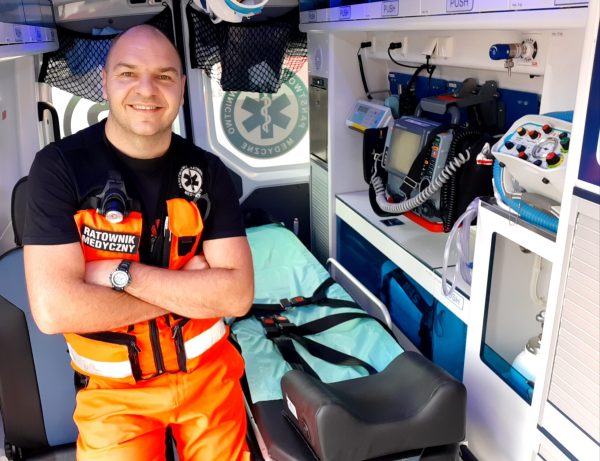
Tomasz Modrzewski – paramedic, head of the Emergency Response Team, practitioner. He is currently affiliated with the Regional Specialist Hospital in Grudziadz (the hospital with the highest level of reference). He is also a pharmacy technician with 10 years of experience in pharmacy. He completed his Bachelor’s degree in Emergency Medicine at the Powislańska School of Higher Education, obtaining the highest possible grade of “very good”, and his Master’s degree in Public Health specialising in Emergency Medicine and Crisis Management at the Medical University of Lodz.
Tomasz writes after himself:
For the last 10 years I have been conducting various educational projects both in Poland and abroad, i.e. First Aid Course for off-road vehicle drivers, Medical-Survival Training, Adult First Aid Course, Children’s First Aid Course.
I am a brand ambassador for PantomSkin (Yoshi Innowation S.A.) – a manufacturer of professional medical trainers.
I am also the author of the pictorial “First Aid Instructions”, which have been distributed in an edition of more than 2,000 copies
-> https://tomaszmodrzewski.pl/sklep/instrukcje-postepowania-w-pierwszej-pomocy/
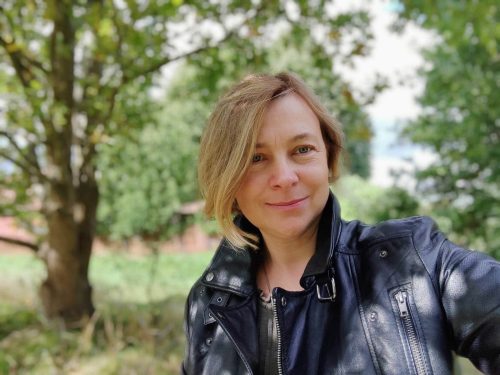
Marzena Żachowska – certified forest bathing guide, sociotherapist. Specialist in kynotherapy – friend of a trained therapy dog, entered in the register of Certified Kennel Therapists. A certified teacher of biology and nature – within the framework of educational activity – an author and coordinator of many school projects promoting environmental protection and appreciated by the Our Earth Foundation, the Foundation for Ecological Education and the Warmia and Mazury Education Board in Olsztyn.
For more than 20 years, she has been a special educator (rehabilitation and oligophrenopedagogy) and therapist working with children and young people with intellectual disabilities and associated conditions, as well as with their parents/carers at the Special School and Educational Centre in Elbląg, with young children at risk of disability at the “Elbląski Maluch” Coordination and Rehabilitation Centre and at the High School of Fine Arts in Gronów Górny.
Since 2012, appointed by the General Director of the State Forests, she has been a member of the Scientific and Social Council of the Promotional Forest Complex “Elbląg and Żuławy Forests”, acting as Secretary. Since 2021, she has been a member of the Council of the Elbląg Upland Landscape Park – acting as deputy chairperson.
ounder of Forest Immersion and therapy offices.
A therapist working in the Brief Solution Focused Therapy stream, member of the Polish Association of Solution Focused Therapists. She holds an international certificate of Advanced Solutions Focused Practitioner IASTI (International Alliance from Solution – Focused Teaching Institutes based in Belgium). She is a practitioner of the Kids’Skills method – I can do it! I’m proud of You! by Finnish psychiatrist Dr. Ben Furman and the School for Parents and Educators programme.
In the process of studying psychotraumatology at the University of Gdansk.
Sexuality educator supporting knowledgeable children, adolescents with disabilities and their parents and teachers in dealing with adolescent problems.
Out of concern for health – following the training path and drawing wholeheartedly on Mindfulness Based Stress Reduction – a graduate of the basic and advanced course.
Privately – a mother of a teenager and a student, a friend of her husband and a samoyed and a Japanese china in love with her forests – the Vistula Spit and the Elbląg Upland. A woman in development, on the move, buried in books, in autumn in the leaves, finding solace and stopping only in the forest.
You can also read more about her expertise:
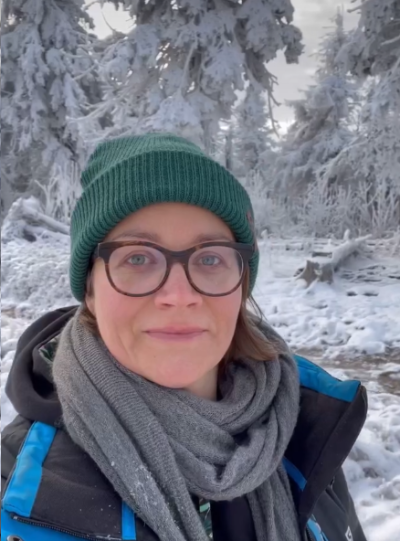
Katarzyna Grabka – certified forest bathing guide, certified nature and forest educator, forest guide.
Founder and President of the Board of the Forest Projects Foundation. Board member of the Polish Forest Bathing Association.
For several years she has been exploring the therapeutic power of the forest and the impact of nature on health and well-being. She visited the world’s first certified shinrin-yoku Akasawa Recreational Forest centre in Japan, where she experienced the practice of forest bathing at the source. She has completed the Forest Therapy Institute’s certified forest bathing guide course and holds a Fortest Therapy Hub certification.
She is a graduate of the courses: “Living Stories” and “Journey to the Enchanted Forest” by the Living Education Workshop.
She is a nature lover and shares her passion by leading forest baths for children and adults, family outings and forest workshops for schools and kindergartens. Before her passion for nature led her to change her career direction and devote herself to forest activities, she worked for 14 years as a project manager in marketing communications dealing with, among other things, the preparation, planning and implementation of promotional campaigns and events. She holds a degree in political science, specialising in journalism and social communication. She also completed postgraduate studies: Persuasive Communication: Advertising, Public Relations, Political Promotion.
Now a certified forest bathing guide, she helps people to find peace and harmony among the trees and nature. She is convinced that contact with nature is essential for our health and well-being, and that forest baths are a great way to relax and regenerate.
Read more about her at: https://lesneprojekty.pl
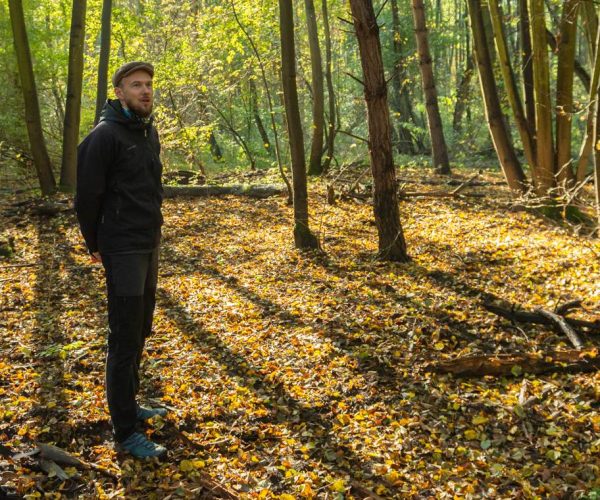
Adam Markuszewski – creator of the concept of Forest Walks referring to Japanese forest baths. He has been developing them since 2015 and after 2018 together with Marta Ostrowska. Board member of the Polish Forest Bathing Association. Guide in the Kampinos Forest, trainer (member of the NGO Trainers Association), facilitator and storyteller. He has led many forest baths for institutions, organisations, teams, small groups, couples, also individuals. He subjects his work to supervision. He is the creator of the bathing audio walk for the Royal Baths. On a day-to-day basis, she works at the Foundation for Social and Economic Initiatives, where she carries out ecological audits.
More about Adam here: https://lesnespacery.pl
Photo: Maciej Ratuszny
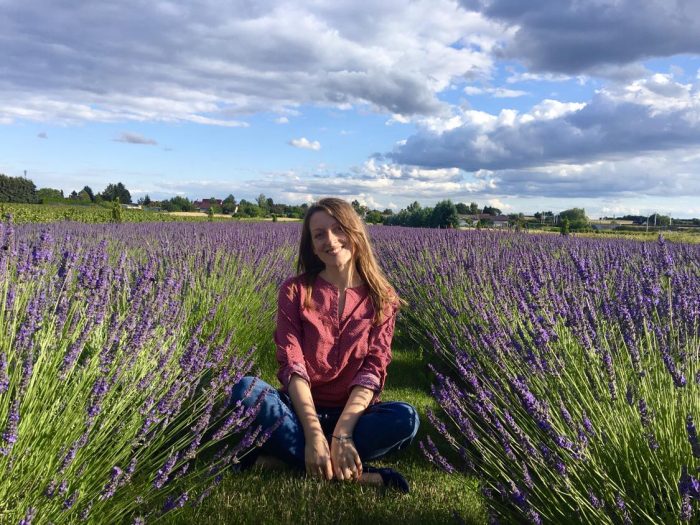
Joanna Ciepielewska – soft skills trainer, educator, coach, activist. Founder and Vice-President of the Here and There Foundation. She has been working with NGOs in the field of education for over 15 years. Creates and implements projects. Board member of the Polish Forest Bathing Association. Certified forest bathing guide of the Forest Therapy Institute and Forest Therapy Hub. Since 2020 she has been running the project Feeling the Forest, in which she invites people to an attentive encounter with Nature.
As she writes about herself:
My inexhaustible source of energy and joy is the Forest.
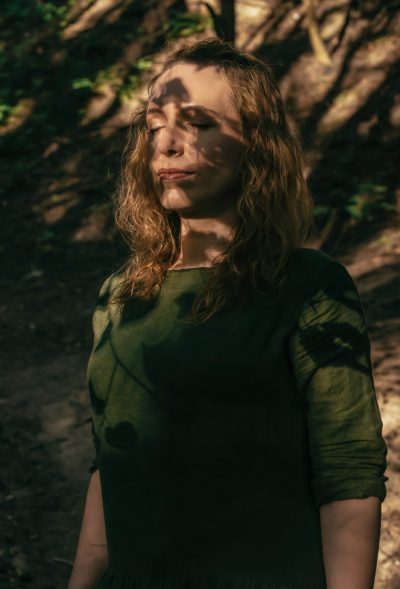
As a certified forest bathing guide and ecotherapist, I believe that the forest not only heals difficult emotions, but also allows the body to heal itself. I fell in love with this therapy for many reasons: it helped me overcome burnout and understand the importance of the forest for the emotional and physical health of a city dweller. This personal journey began in the morning when many trees were cut down under the windows of my house. The empty and lifeless windows of the house began to feel oppressive. Looking for ways to get out of a depressing mood, I intuitively began to spend more time in nature, and when I learned the Japanese technique of shinrin-yoku – forest bathing – and started practicing it, I quickly felt relief. Peace and joy returned to me. Trying to find out whether nature (or lack thereof) actually has an impact on the human condition, I came across a number of studies that confirmed it, including: to the Japanese study of the author of the famous book “Shinrin-yoku”, Dr. Qing Li. “The roots of modern man’s problems lie in his alienation from nature, the environment in which he has evolved for millions of years and which is written in his genes. Locked in offices and homes, we conduct most of our lives, including communication, virtually. Not only are we becoming more physically and mentally ill, but we are increasingly overworked and unaware of the natural environment that is so important to our survival,” says the author.
In the fall of 2019, I completed training at the Forest Therapy Institute, becoming a certified forest bathing guide in Lithuania. Since then, I have been conducting forest bathing in Vilnius and other forests in Lithuania and beyond. In 2023, I obtained my Ecotherapy Certificate from the Pacifica Graduate Institute under the supervision of Linda Buzzell (book “Ecotherapy”) and Mary-Jayne Rust (book “Ecopsychotherapy”). My growing research interest is in ecolinguistics, an emerging interdisciplinary field that examines how the words we use and the stories we tell ourselves shape our approach to nature. In addition to Qing Li’s book, I have translated other works: fiction, non-fiction and poetry from several languages, including Ukrainian, which is my second language due to my origin and roots. I am currently finishing the translation of Amos Clifford’s book “Your Guide to Forest Bathing” from English into Lithuanian. My goal is to inspire people to spend more time in nature, not feeling like they own it, but rather that they are part of it and can derive health, well-being and inspiration from it.More about Mila: https://shinrinyoku.lt
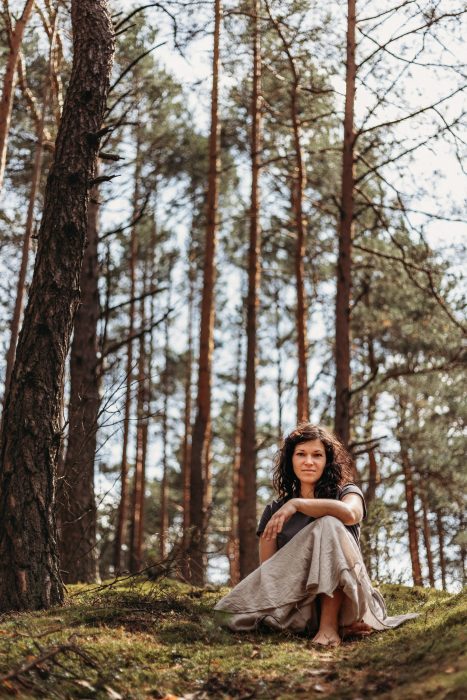
Marta Cichowska – Napiórkowska – forest bathing guide, completed postgraduate studies in horticultural therapy at the University of Warmia and Mazury under the supervision of Beata Płoszaj Witkowska, vice-president of the Strefa Przerząnia Foundation, teacher of the Buteyko method during certification. The arrival of her second daughter into the world meant that she became the originator and co-director of one of the first forest kindergartens in Poland. Since 2016, the “Włóczykij” Forest Kindergarten in Ostrołęka has been creating a place for a child with physical disabilities, where she was the shadow and author of the girl’s therapeutic plan, enabling her development through contact and movement in nature. Since 2017, she has been conducting forest walks and workshops for women. Her favorites include forest floristry workshops, ceramic workshops using plants, and Kurpie singers. A music lover in nature. Since 2021, he has been conducting forest bathing, which from 2022 has been expanded with Buteyko breathing training.
She writes about herself: ‘I found peace, respite and inspiration in the forest. Contact with nature allowed me to understand how much our everyday life has moved away from what is original and true. My experience shows that therapy cannot be performed as successfully in a room as in nature. The effects of everyday contact with nature can do more than the best-equipped gym, and creativity is more surprising when we reach for what is less obvious and seemingly unnecessary because it was found on the forest floor. In my activities, I want to show people that by renewing their contact with nature in the spirit of relationship, they become something more than just its users. I support mothers of children with disabilities by inviting them to the forest for respite. I invite families to give them a different type of shared experience based on the values and experiences resulting from the relationship with nature. I try to infect others with my childhood enthusiasm for being in nature.’
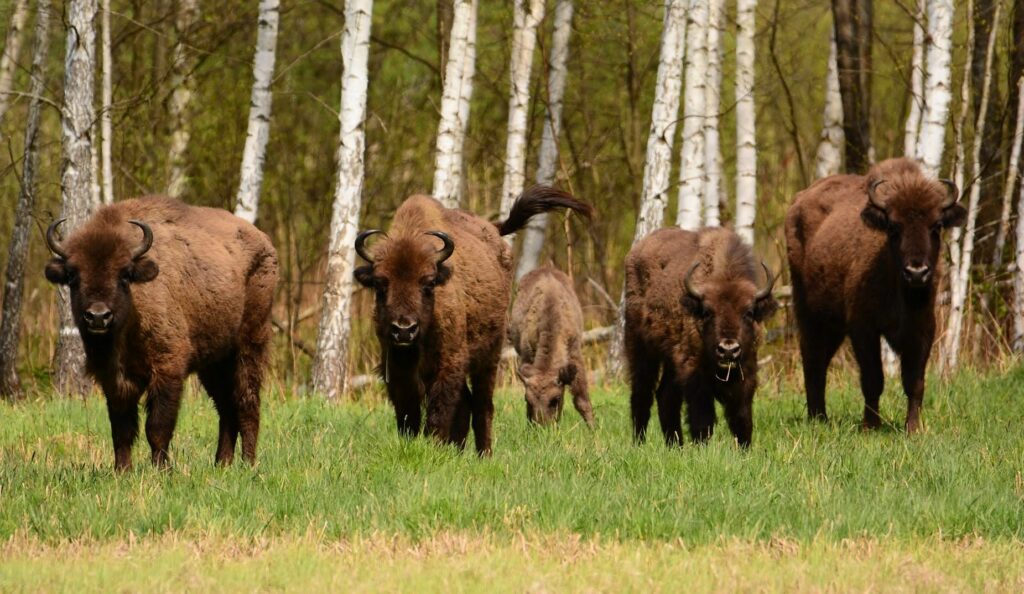
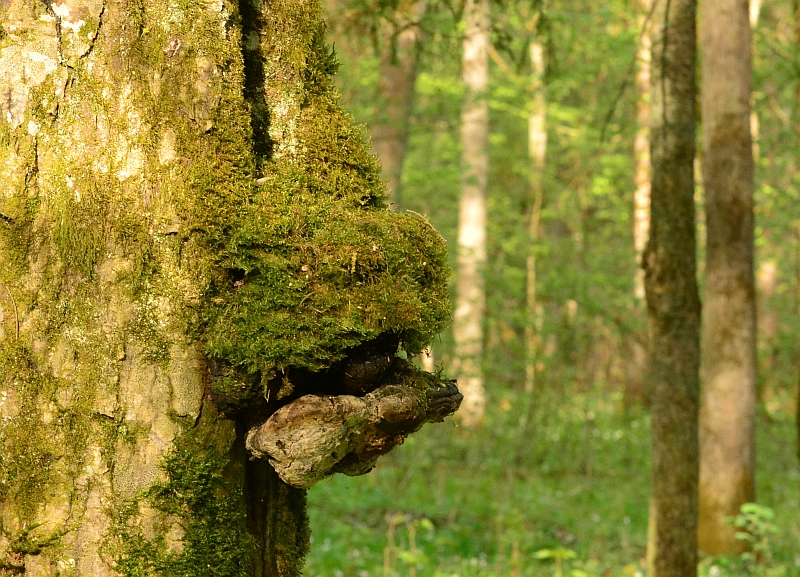
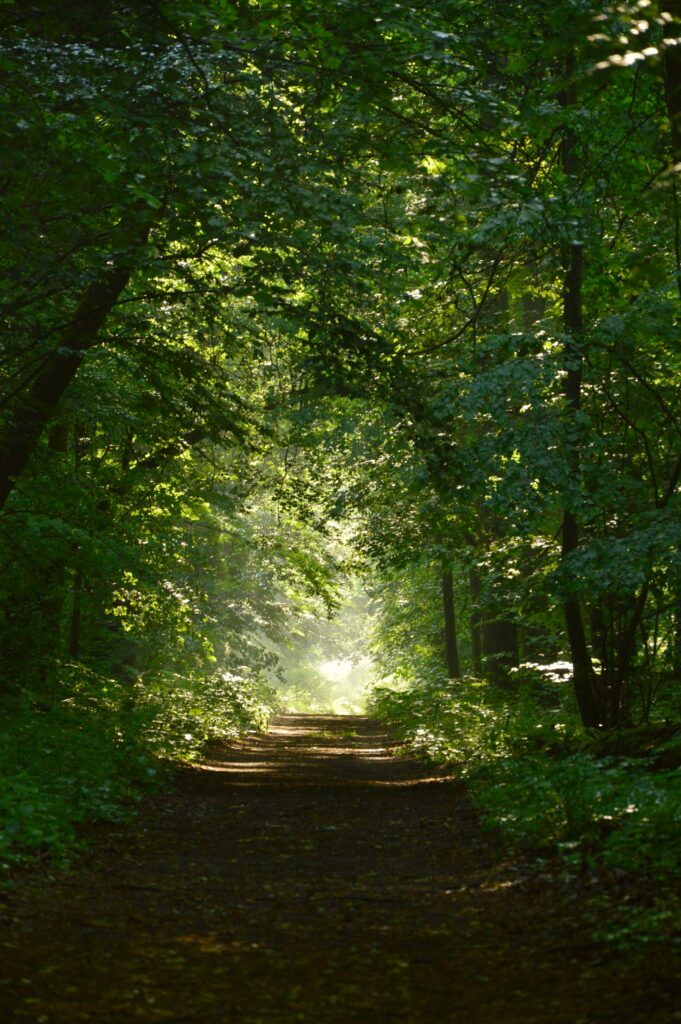
Delightful, rich, cavernous… Deep, biodiverse, ancient. Much can be written about the Białowieża Forest, but few people know that it is… over 10,000 years old. So he is definitely the oldest person in our human-non-human-landscape team. It is from Her that we learn how natural processes should take place, what coexistence is, what instincts lie within us and how nature can solve difficulties. By observing its inhabitants, who at the same time build its wonderful organism, we learn what relationships, family, competition and support are, what is the meaning of existence, living, dying and rebirth. After all, it is in Her, as in a mirror, that we reflect ourselves as a whole, with our bodies and minds. Like a Jungian mandala, it is an image of the self – primary, natural, containing light and shadow, consciousness and unconsciousness and all archetypes.
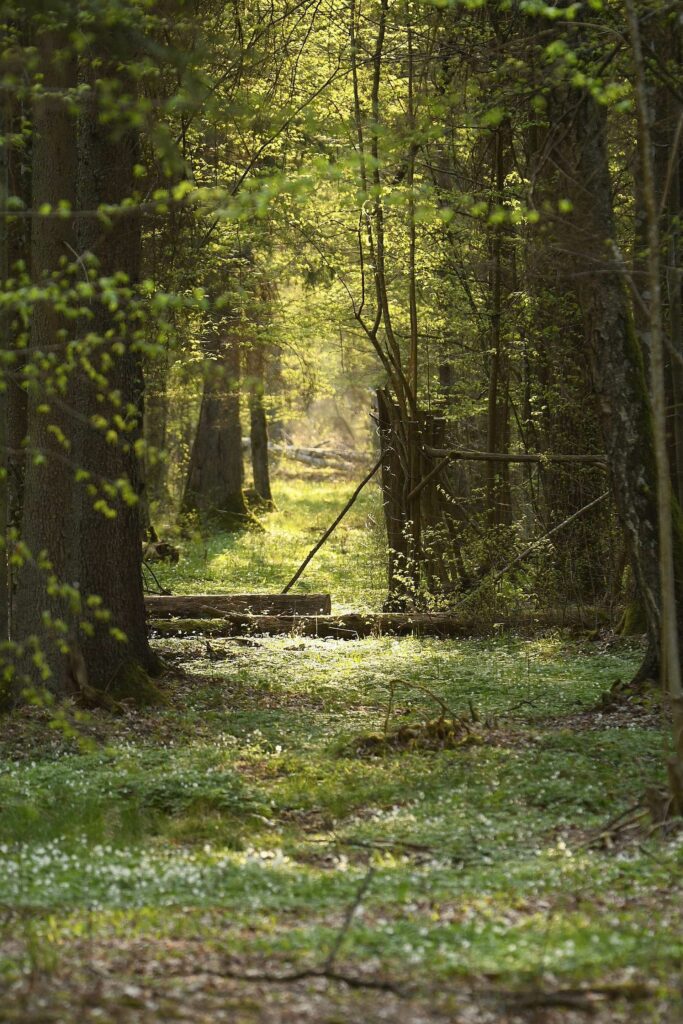
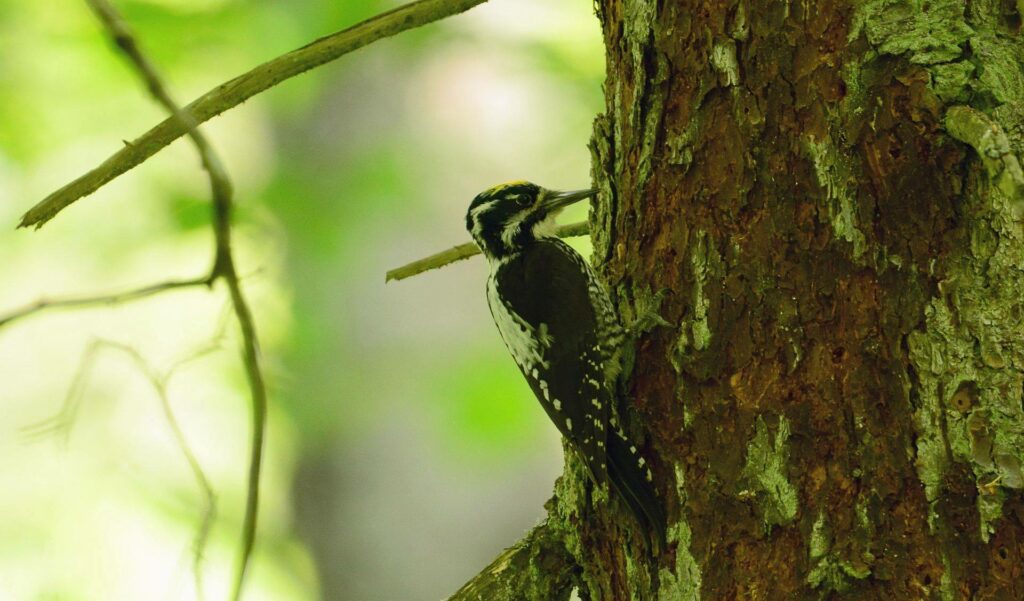
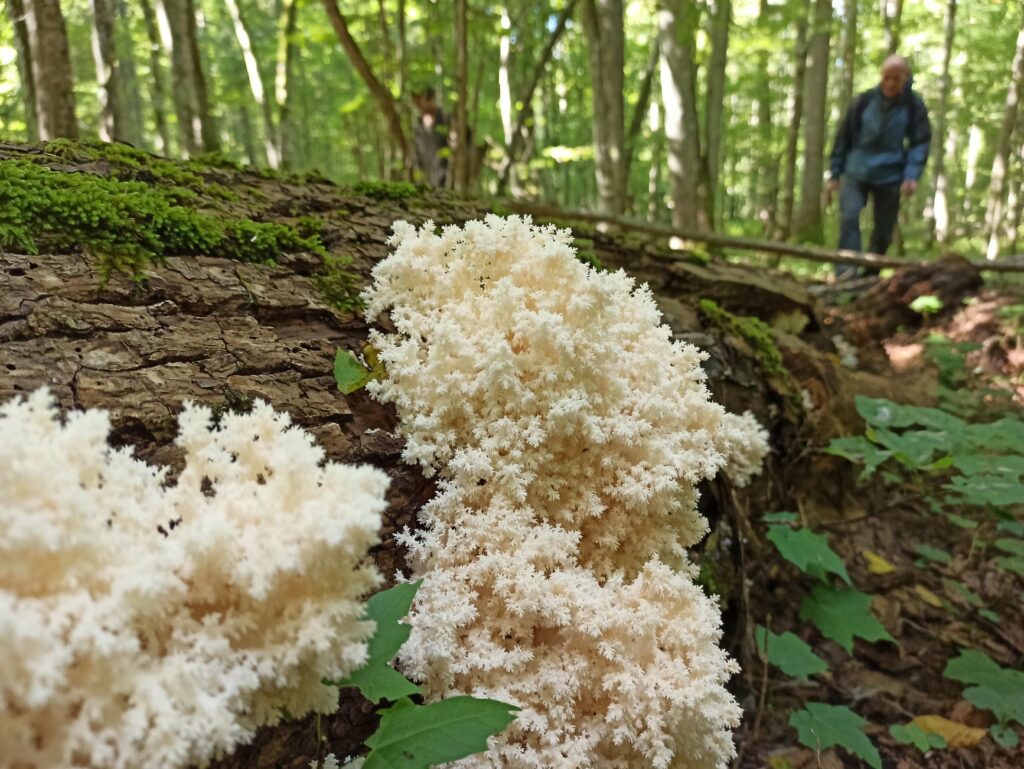
The Białowieża Forest is a unique forest on a global scale, stretching across Poland and Belarus. Some of the last large fragments of lowland forest in Europe have been preserved here. It is a living environment for many rare species – from the world’s largest free population of bison, through birds, butterflies, beetles, plants and mushrooms. A natural forest does not grow “on a straight line” – the trees are of different ages, form several floors, and have a diverse species composition. A large amount of dead wood, which no one takes away, turns into natural fertilizer, thanks to which the plants here are exceptionally large and healthy, and the Forest itself can be a home to creatures that live only thanks to dead wood – insects, slime molds and fungi – This is where new species are constantly discovered and tested for new drugs, e.g. anticancer ones. Forest communities that are very rare in the country have been preserved here, such as boreal spruce on peat and sedge oak. The forest regenerates itself, without human intervention, although the population proportions of different trees change over time. And that’s why I like conducting workshops here so much – I don’t know any other place with such huge biodiversity! This is exactly the type of forest we, the inhabitants of Central Europe, have been accustomed to for centuries.
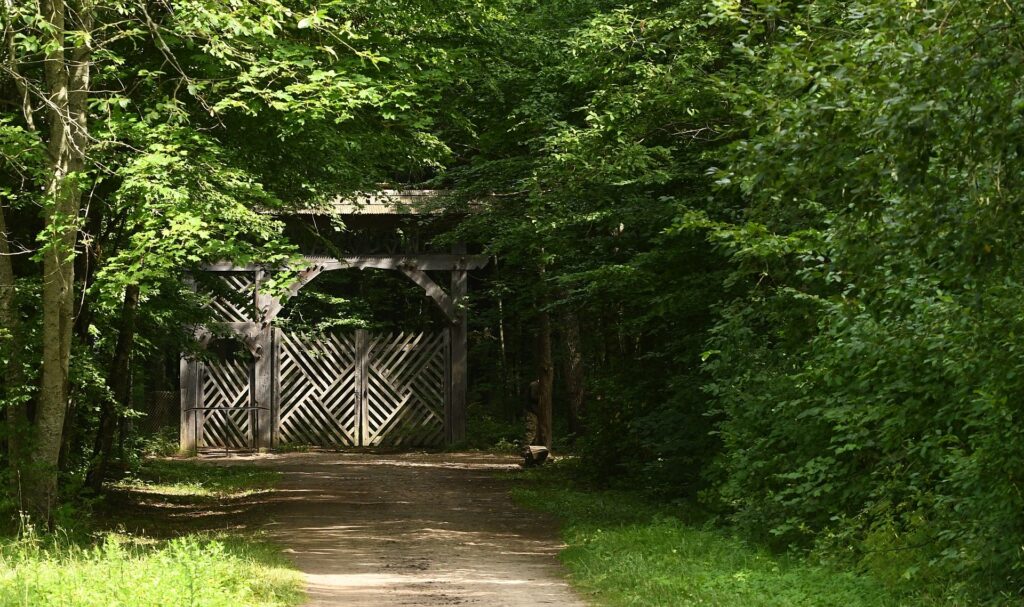
A good hospital has many specialists, departments and extensive experience. Let’s make sure that our forests are diverse, old, full of dead wood, and inhabited by micro- and macrobiota that are not found in commercial forests. To have a comprehensive impact on our health, making us more aware, resilient, rested and happy.
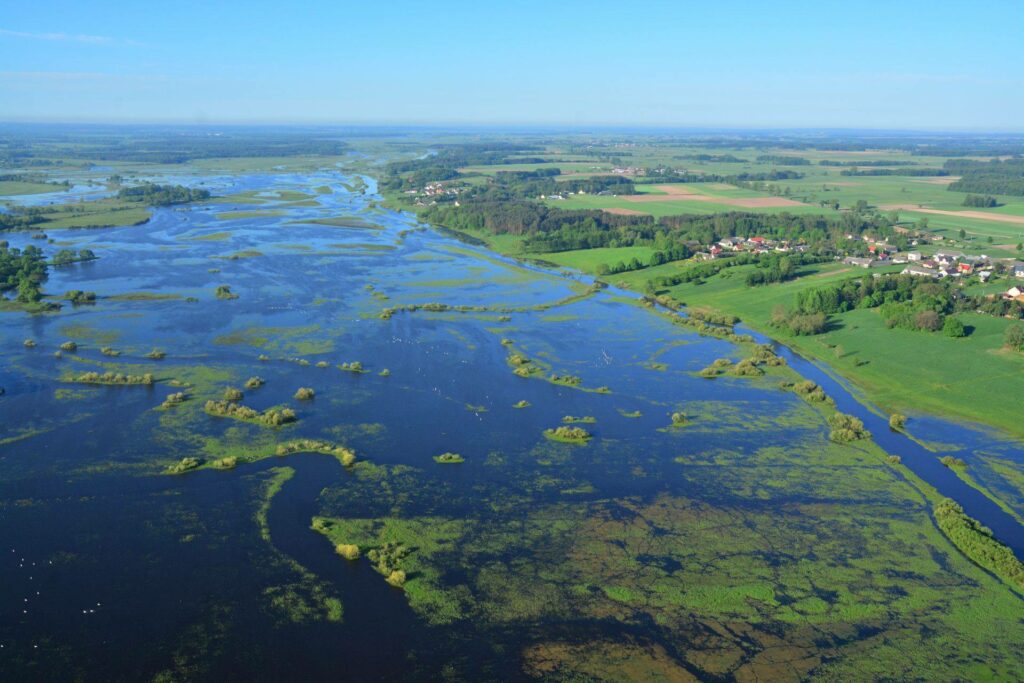
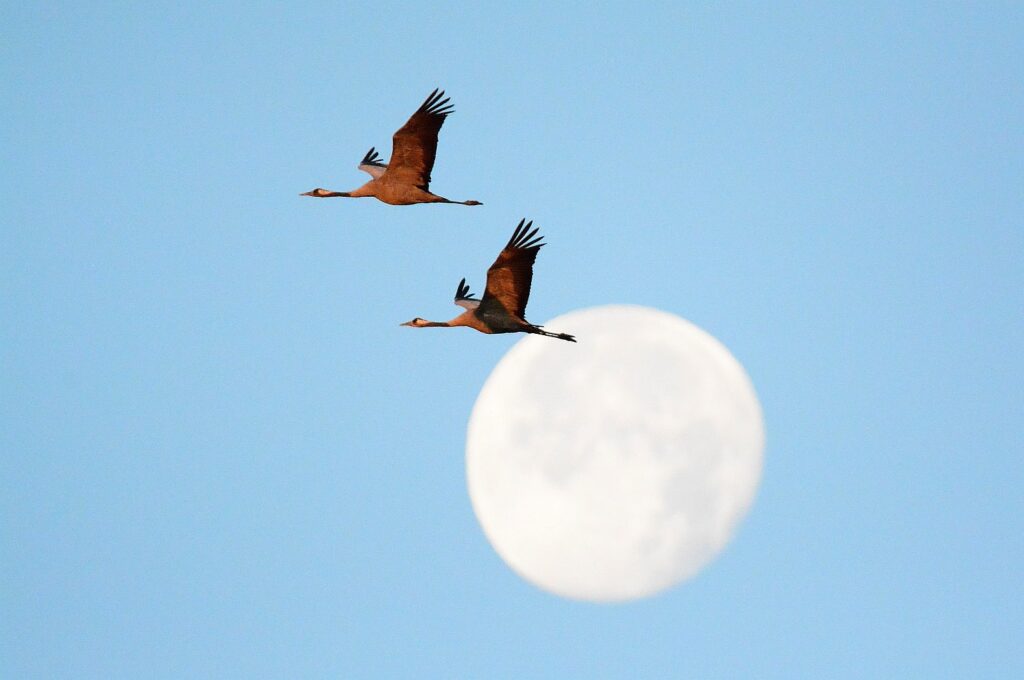
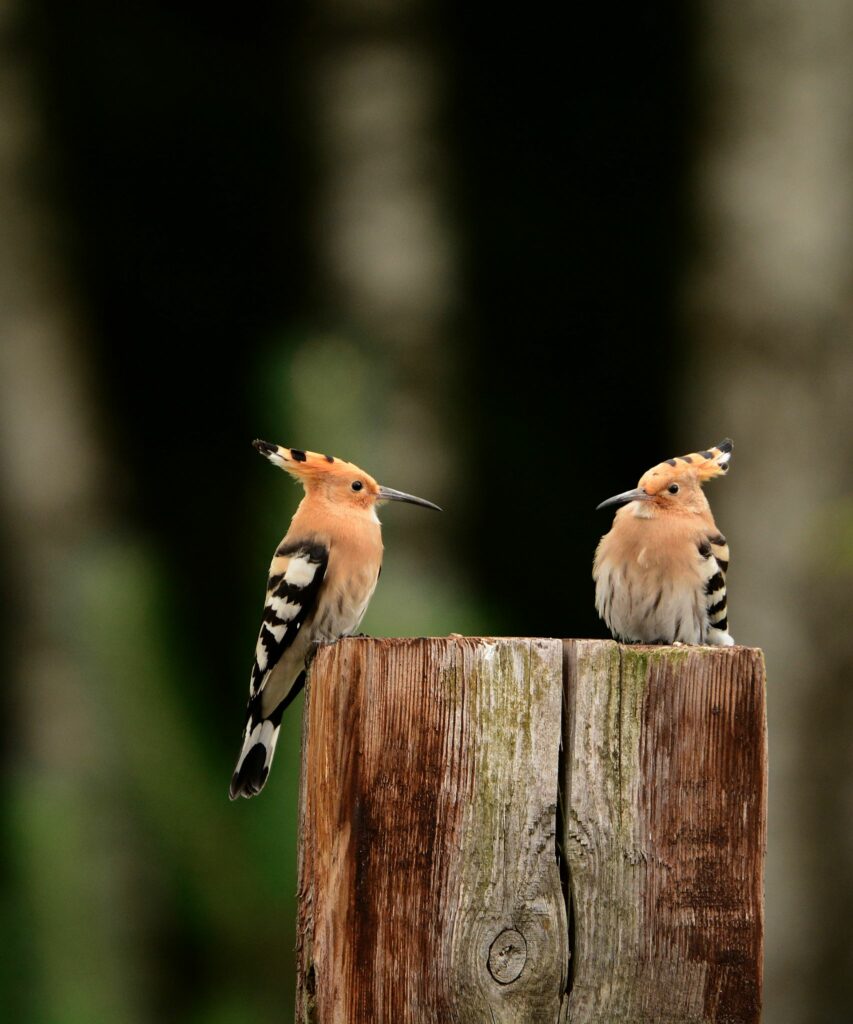
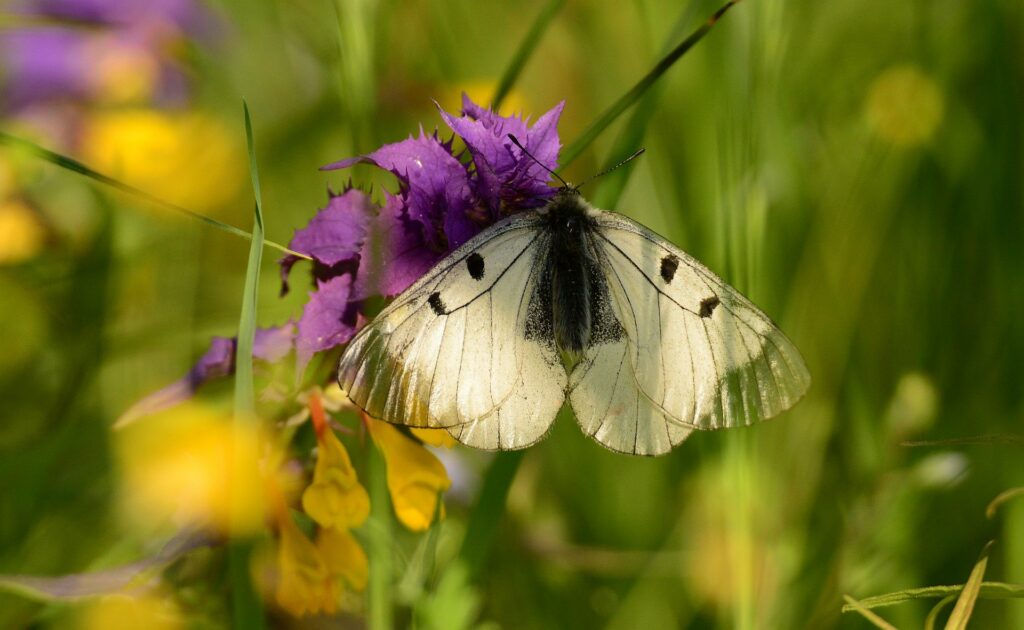
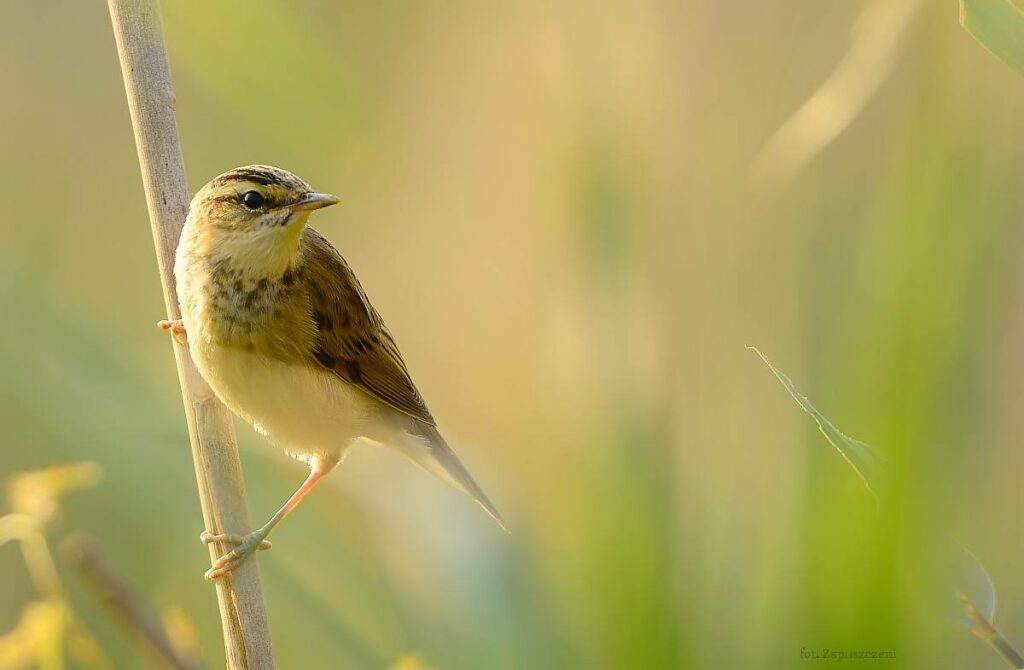
To say Polish Amazonia is to underestimate its unique character. Her name comes from the Old Baltic language, which has echoes in today’s Lithuanian: bebras means Bóbr, and there are plenty of them in Biebrza. In a way, the Biebrza River unites Poland and Lithuania, which is why it is so important to our international team – it connects with the Niemen River through the Augustów Canal. It flows along its entire length through an ice-marginal valley, the largest natural river retention reservoir in Poland. Wild, untamed, spreading widely, hosting, feeding and raising thousands of birds. Bustling with life at any time of the year. In winter, marked by the tracks of otters, wolves, and beavers roaming the ice and snow, hiding lynxes and numerous species of woodpeckers in the privacy of coniferous forests… In spring, celebrating life in its entirety, sparkling with blue water and yellow fields of marigolds, constantly showing other botanical treasures, such as checkerboard, shoelace or other beautiful species of marsh orchids. Shouting with the voices of fighting battalions, bell-tailed godwits, calling cranes, looking at gentle, huge moose in the mirror of its waters. In summer, it is fragrant, tempting with the coolness of the forests, the flowers of the Tsar’s Way, hosts wonderful places and talks of extraordinary people, such as the King of Biebrza or Darek Karp the Gray Wolf. Inviting those traveling on foot, by bicycle, by balloon, by raft, by kayak, asking drivers to drive slowly, trembling for its children on the asphalt – cubs, grass snakes, birds. In autumn, carrying the echoes of gathering cranes, ruts, beech fields… waiting for frost and another year. This is what Biebrza is like. Full of surprises, unique items, rare species of insects (mnemosyne moth), birds (warbler), plants (sundews, shoe fly), mammals and other creatures, fish and… moose, of which it is the largest refuge in Poland.
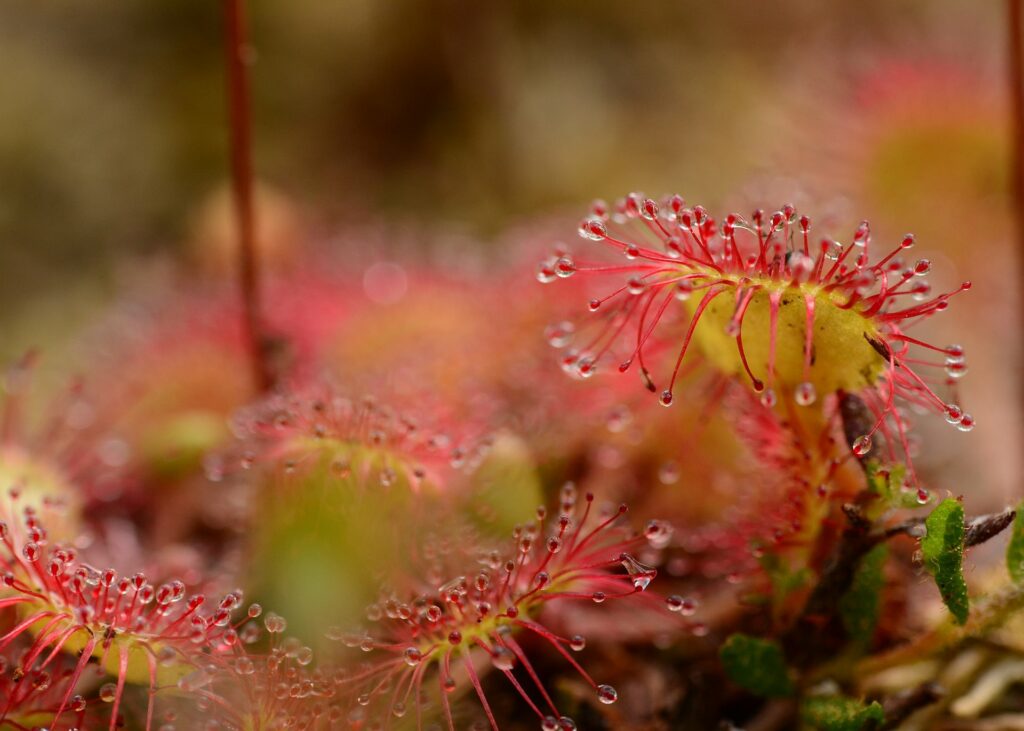
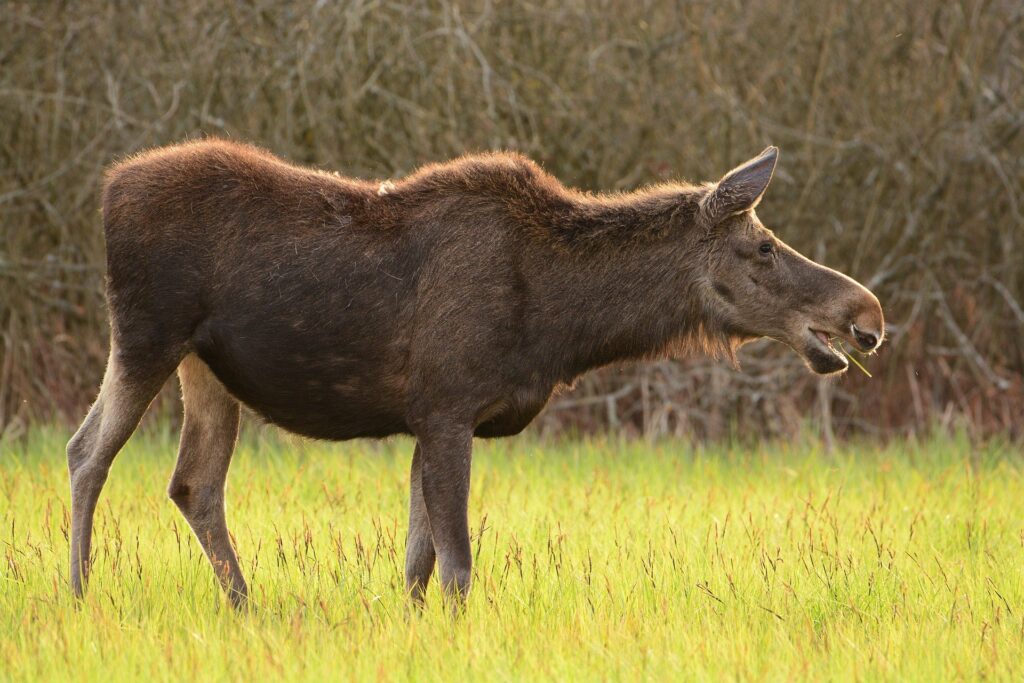
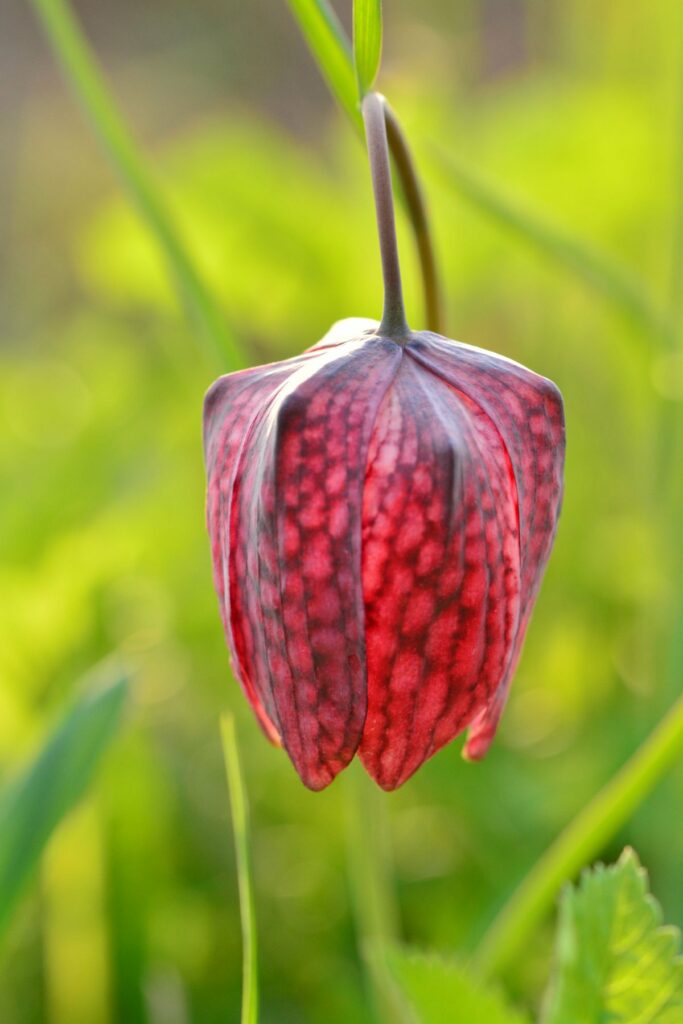
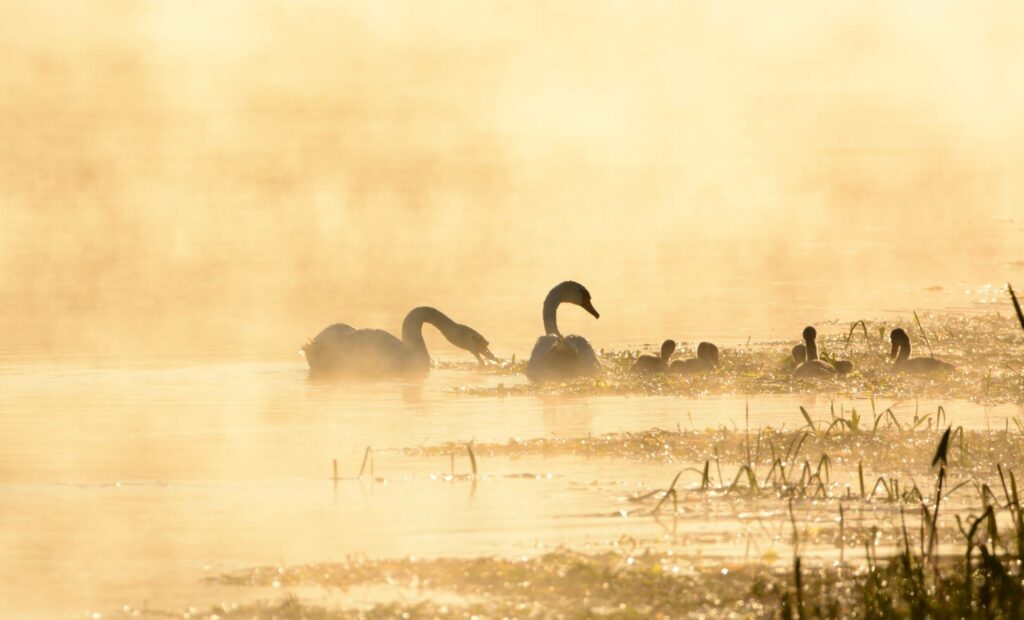
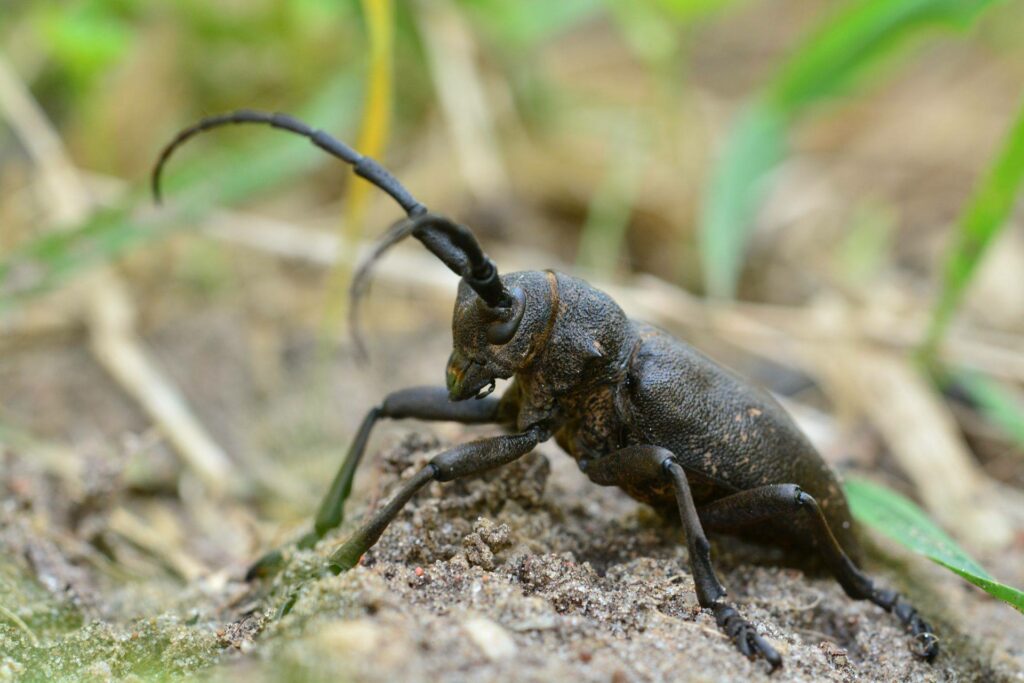
Biebrza is an ideal landscape for learning and experiencing forest therapy, therapeutic ornithology, mindfulness in nature, it ignites curiosity, arouses delight, embraces and soothes. For several years, our trainers and experts have been regularly conducting ecotherapeutic events, workshops and recharging their batteries to deepen their personal relationship with Nature. Like every river, the Biebrza has its own character – colorful, deep, interesting and with many stories to offer. She has seen many things and hides many secrets, but she willingly reveals them to those who are attentive and respect her. From this unique Person – the River, we can learn many lessons about the balance of light and shadow, fluidity, what is above the surface and what is hidden. About how to swim, dive and fly above the surface of water and life.
